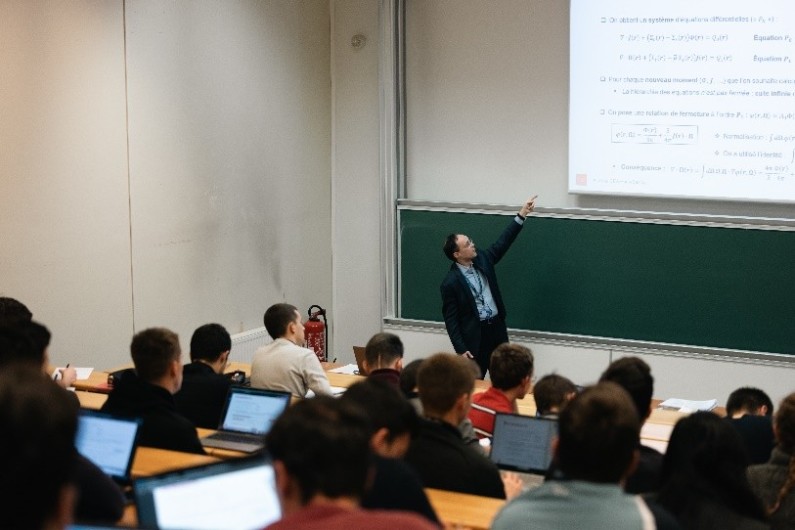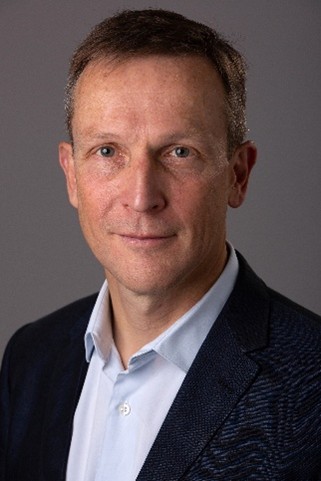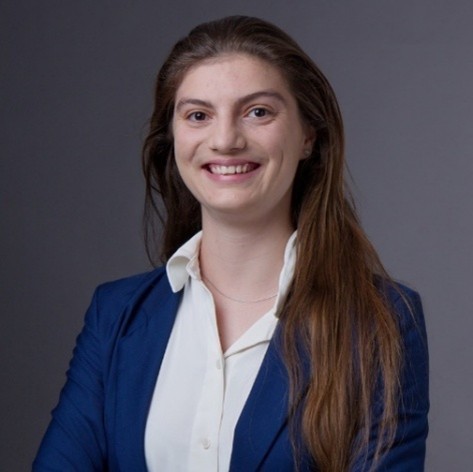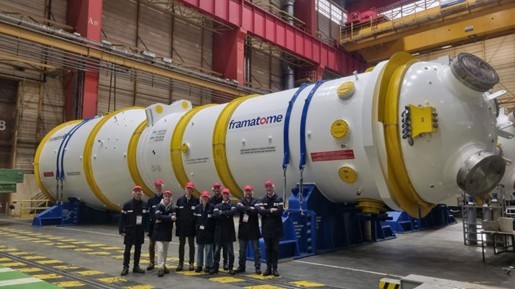A prestigious Chair at École Polytechnique to train tomorrow's talent in nuclear energy and decarbonization
 Nuclear Reactor Physics Course offered by the Chair
Nuclear Reactor Physics Course offered by the Chair
Focused primarily on teaching, the Sustainable Energy Chair illustrates École Polytechnique's pedagogical excellence and its commitment to training engineering students to address societal challenges. Among its flagship courses, Nuclear Reactor Physics is the most popular physics course in the third year of the engineering program in 2025, with 72 students enrolled, attesting to the growing appeal of nuclear energy and the quality of teaching.
According to François Willaime, Chair holder, this enthusiasm is part of the momentum of the Energy Specialization Program, which attracts many students who are sensitive to climate challenges and the energy transition. This momentum is not limited to course attendance: it is also reflected in the individual and inspiring paths of the students.

The success of nuclear engineering courses reflects the growing awareness of the challenges facing engineers in the revival of nuclear power, a particularly low-carbon energy source. There are great opportunities for all profiles, whether in the major government agencies, research or industry, in large companies or innovative start-ups.
The Nuclear Reactor Physics course had a significant impact on Léa Girard (X2022). After taking the course, she completed her third-year internship at the Hubert Curien Multidisciplinary Institute in Strasbourg, working with the Nuclear Data for Reactors team led by Maëlle Kerveno, for which she received an award.
Currently in her fourth year of a Master's degree in nuclear energy at the University of Cambridge, Léa is pursuing her interest in the nuclear field in order to put her knowledge to work for society. She is delighted to see that more and more women are getting involved in this field. Her career path illustrates the excellence and commitment of female Polytechnique graduates in nuclear-related projects.
Since climate change seems to me to be one of the major problems facing our generation, I decided to focus on the field of carbon-free energy. I chose nuclear power in particular because of the complexity of the technologies used and the advanced physics involved in fission mechanisms.


Another success for the Chair is the course Fluid Mechanics for Energy and Nuclear Applications, taken by 82 students in 2025, which has become the most popular mechanics course among third-year students. The Chair rounds out its course offerings with Creating and Using Models for Energy Transition and Materials Science for Energy Conversion and Storage, providing training tailored to current energy challenges.
The advanced lectures on Nuclear Reactor Technology and Fuel Cycle are also very popular, welcoming leading figures such as Sophie Mourlon, Director General of Energy and Climate at the Ministry of Ecological Transition, Catherine Back, CEO of EDF EPR Engineering UK, and Bernard Fontana, CEO of Framatome (before his appointment as Chairman of EDF).
Finally, the Chair promotes professional immersion through visits to companies such as the CEA Saclay research center, the Framatome factories in Le Creusot and Saint Marcel, and the Chinon nuclear power plant, allowing students to discover the entire nuclear chain: from R&D to component manufacturing and energy production. These initiatives reflect the commitment of EDF and École Polytechnique to innovative, prestigious education focused on energy challenges.

The Sustainable Energy Chair has established itself as a center of excellence, capable of developing high-level teaching programs and identifying the talent that will shape the future of carbon-free energy.
It also pays tribute to Sylvain David, professor of Nuclear Reactor Physics since its creation in 2008, whose sudden death in early 2025 had a profound impact on the community.
 Support l'X
Support l'X